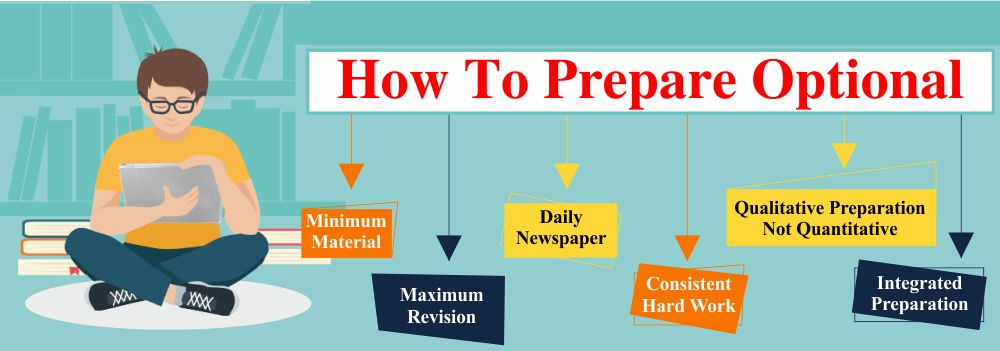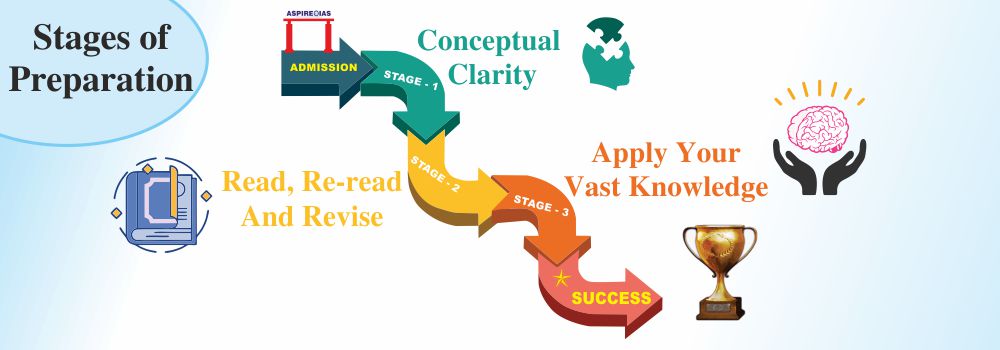Online Learning Portal
Online Learning Portal
This is a very important decision. Fortunately in the new format GS is much more important. So don’t take this decision at the beginning. First start preparing for GS and then after some time take this decision. Because in four GS papers you will be introduced to variety of optional subjects like History, Geography, Public Administration, Political Science and Sociology. This will help you to determine your inclination to a particular subject.
Every subject has its own demand (i.e. thinking pattern, writing style, presentation techniques etc.). If you are strong in all your GS papers with consistent newspaper reading and note making habits, the decision of IAS Mains optional might not play a big difference in your results. But unfortunately very few aspirants fall into the “strong GS” category of students and it’s not easy to get into the club without serious long term preparation.
Selecting an overlapping optional with General Studies is a good strategy, as the time required to study an optional subject not mentioned as per GS syllabus can be saved. This case is not universally applicable though. There are also many who made it to the top with optional subjects like Medical Science or Law. None of these overlaps with GS syllabus as subjects like History or Geography do. NEVER TAKE AN OPTIONAL JUST FOR THE SOLE REASON OF GS OVERLAP. Please understand that each and every optional subject is scoring. Due to the scaling effects, some optionals might not turn high-scoring in some years, but there is no universal trend or theory. You requirement is to score maximum marks in the optional subject as well as in GS. Time available, the effort required and the possibility of maximum marks are three crucial factors to consider before you select the option. While selecting your optional
you should also keep in mind the following:
Choosing a right Optional subject is a crucial step in your preparation for the UPSC civil services exam. A wrong decision not only costs you a rank but also leaves in you a sense of regret for the rest of your life.
Aspirants come from diverse academic backgrounds – Agriculture, Arts, Commerce, Engineering, Law, Literature, Management, Medical, Science etc. That is why UPSC has given aspirants to choose from an array of 51 Optional subjects (26 Literature + 25 non literature subjects) based on their interests and academic background. It is a common knowledge that many aspirants opt for subjects other than their graduation subjects.


Stage 1: In this stage, you should just focus on understanding what you are reading. While reading, you must understand the concept fully. You will forget the thing 2 days after you have read it, don’t worry. You mayl not even understand half the questions which have been asked in previous years, don’t worry. You don’t even have a clue of how to write answers in the exam, don’t worry. Just ensure you understand what you are reading and finish the syllabus.
Stage 2: This begins after the syllabus has been finished once. In the second time, again focus on understanding what you are reading. This time you would find, it takes less time to understand all the stuff and most of it seems familiar once you read. Our retention would increase at this stage. Read, re-read, revise the syllabus 2-3 times, ensure that you can recall without any aid what was said in a given topic and can reproduce it on paper. At the end of this stage, you would still not be able to even understand half the questions in the paper.
Stage 3: Many questions in the question paper are not direct. The aim of this stage is to identify how to apply the vast knowledge you have after a yearlong preparation. This can only come if we sit down with previous years’ question papers and think and think and have discussions with others on various topics. You will be able to answer most (90-95%) of the questions in previous years’ question papers now.
Practice answer writing to ensure that you can convey your answers in an effective manner. Every good answer has two components- content and presentation. First read the question thoroughly to understand the demands of the question- what is it asking about, whether the details of any theory, or its comparative advantages and disadvantages with another, just jot down the points you would want to cover in a few seconds and only then start writing. This will make sure that you don’t lose track of the question and cover all the points asked.

Our Popular Courses
Module wise Prelims Batches
Mains Batches
Test Series